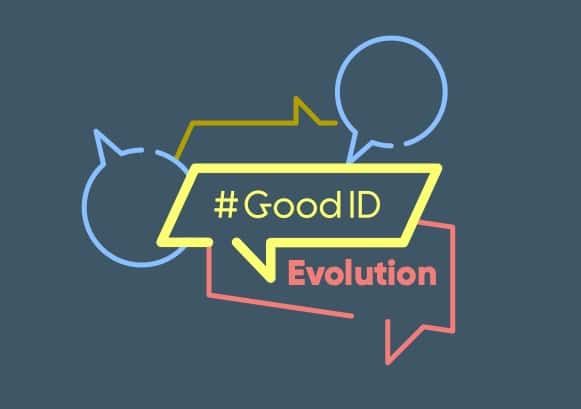 2021 continues to be a pivotal time for digital identity as interest and perspectives emerge from every sector of society. The Covid-19 pandemic, a long overdue global reckoning on racial and economic justice, and challenges to the roles and responsibilities of tech companies catapulted the debates around identification systems into the mainstream. Governments scrambled to digitize services, displacement and forced migration increased, and urgent issues on vaccination credentials dominated the news cycle, accelerating industry discussions and the introduction of new actors and advocates on a global stage.
2021 continues to be a pivotal time for digital identity as interest and perspectives emerge from every sector of society. The Covid-19 pandemic, a long overdue global reckoning on racial and economic justice, and challenges to the roles and responsibilities of tech companies catapulted the debates around identification systems into the mainstream. Governments scrambled to digitize services, displacement and forced migration increased, and urgent issues on vaccination credentials dominated the news cycle, accelerating industry discussions and the introduction of new actors and advocates on a global stage.
A constant has been the #GoodID channels (www.good-id.org,@GoodID @goodidstories) convening those new to the discussion and serving as reliable global spaces for long-standing privacy activists, software vendors, humanitarian organizations, advertisers, national governments, tech startups, lawyers, and economists to share viewpoints and resources. While there were an enormous number of frameworks, principles, codes, and academic research circulating, what was often missing in the digital identity debate were real-world stories that would bring the issues to life—a place where all the different stakeholders, often siloed by their interests and industries, could connect and debate.
Launched in 2019, the #GoodID channels and the larger Good ID movement have served as a catalyst for bold ideas, shared solutions on good policy, good technology, good practices for government-issued ID, data trails, and both the technology and ethics surrounding decentralized identity systems. Facilitated by Unfold Stories (a creative agency for social issues), supported and guided by Omidyar Network, and accelerated by movement leaders and visionaries, #GoodID offers an accessible platform—open, safe, clear, practical—for navigating the legal, technical, and political complexities of digital identity.
Through thoughtful convening by Unfold Stories, the #GoodID channels—and the #GoodID hashtag—successfully established a common language and glossary around what “good” should look like in the context of digital identity. Unfold Stories has communicated a practical set of values and tenets in a clear and accessible way that galvanizes the movement. #GoodID surfaces regularly in conversation within governments as well as academic, business, and humanitarian organizations.
Guided by an Independent Editorial Board in 2020-2021, the #GoodID Awards, monthly e-bulletin, and related Twitter debates resulted in the #GoodID hashtag reaching 285 million impressions on Twitter, over 400,000 individual engagements, and nearly 40,000 posts with engagement rates that frequently topped 20%. In an effort to reach a broader audience, Unfold Stories also explored the opportunities and risks of digital identification systems for people in the real world via a series of 22 vignettes on Instagram, called Good ID Stories.
Recognizing the importance of this point in time for the #GoodID movement—and as advised by consultations with the #GoodID community—we agreed that #GoodID will move to an academic institution to grow and evolve.
Starting in 2022, the Berkman Klein Center for Internet and Society at Harvard University will steward #GoodID, curating the Twitter and Instagram channels. The Center brings expertise, a cutting-edge research network, the ability to convene influential thinkers and doers, and a commitment to developing initiatives that explore the future of digital identities. As part of this evolution, we will sunset the #GoodID website in late December 2021; please check out the Berkman Klein Center website to find many identity-related resources.
“Berkman Klein is committed to studying the possibilities of digital identity across a range of domains and geographies,” said Managing Director Lis Sylvan, “We’re excited to share our work and engage with and learn from the communities that have been drawn to ideas and debates around #GoodID.”
The Center will foster dialogue through the #GoodID channels, introducing new research and academic efforts that reflect trust-building practices (transparency, accountability, and public participation) alongside policy and technology design features that prioritize privacy, inclusion, user value, user agency, and security.
Berkman Klein Center is uniquely positioned to introduce viewpoints, debates, and areas of exploration from academic and research perspectives. The Center recently launched the Institute for Rebooting Social Media, a research initiative to accelerate progress toward better understanding of social media through legal, architectural, and platform policy interventions. In connection with this Institute and the Berkman Klein Research Sprints, and through the Center’s ongoing work with the over 100 international Network of Internet and Society Research Centers, the Center will support conversations about digital identity issues that will reach diverse and interdisciplinary communities of research and practice.
COVID-19 has changed our collective understanding of the uses, value, and risks of digital identification systems. The Center will explore questions surrounding digital identity in the data governance, privacy, social media, and data economy debates. Omidyar Network and Unfold Stories are excited to see how the Berkman Klein Center will advance these questions through the existing #GoodID channels and the Center’s academic programming.

